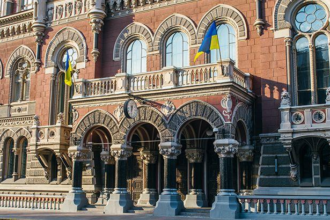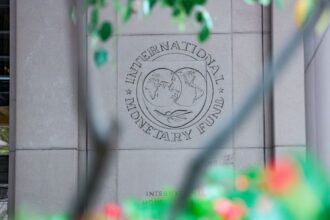David Satter, an American journalist and historian, is the author of many books about the fall of the Soviet Union. (Age of Delirium – The Decline and Fall of the Soviet Union ; Darkness at Dawn – The Rise of the Russian Criminal State ; It Was A Long Time Ago but It Never Happened Anyhow: Russia and Communist Past ; Never Speak To Strangers – Other Writings from Russia and Soviet Union). He was a correspondent for the Financial Times, and one of the first journalists who investigated the involvement of Russian Special Services in the Moscow apartment attacks at the beginning Putin’s regime. In 2013, he was expelled. RFE/RL’s Georgian Service spoke with Satter about the Russia-Ukraine conflict and the new dynamics in Georgia-Russia relations. We began the conversation by asking Satter about the Russian people’s sense of responsibility and the war in Ukraine.
Satter says that “some people sign up because they feel like they have no other option to support themselves and their families.” “The Russians don’t respect the rights of others because of historical reasons.” They were victims, no doubt, of the Soviet regime. But they also supported it, because Russia has an ecclesiastical mentality. Russia has a mentality that is not like a country or a state. It’s more like a movement. In a group, the individual is not important. People derive their sense of self-worth from the group, and it can be difficult to break away from the group because the psychology has been distorted. Other conditions could lead Russians to behave very differently. One way to create these other conditions is to defeat Russia in this war.”
Do you know of any examples in Russian history where they acted differently?
After the Crimean War, serfs were liberated. After the Russo-Japanese War Russia received its first constitution. The Cold War defeat, if you want to talk about it, gave Russia the opportunity to put an end to communist ideologies, if not practices.
But isn’t it all domestic? What I meant by respecting borders and other nations was to respect the boundaries of those countries.
No. No. The fact that so many Russians, and other people, were victims of the Soviet system does not mean that their psychology was healthy. Far from that. In many ways, Russia is a sick nation. It’s sick due to what was done historically to the Russian people. They were slaves. After a short time, they were again enslaved by the communist regime. This had a terrible impact on the psychology of people and their personal lives. Let me give you a simple illustration: After the fall the Soviet Union, Russians were obsessed with sports. As it became apparent that Russia was no more a great power the people expressed their desire to win, for glory, and for collective action by cheering on the Russian sports teams. They became obsessed with it. Everyone on the bus would be elated if there was a Russian win. After all these oppressive years, during which many Russians acted very virtuously, but the majority didn’t, they have been psychologically conditioned into thinking in terms of taking part in some great crusade and gaining a sense self-worth by being a part of it. I mean, the average Soviet was not a citizen. He was a builder communism.
This mentality has always been there. The economic transformation of Russia following the fall of communism didn’t change it because there wasn’t a fundamental change in the attitude towards the individual. This mentality was already there when Putin needed it to save himself and his corrupt circle. It was just a matter of mobilizing it. It had not changed.
In an essay, you highlight a ridiculous statement by Putin that 99% Russians would sacrifice their lives to save their country. What do you believe the actual number to be?
I don’t believe any Russian wants to give their life up, but they will if necessary. I think that the percentage of people who are fighting in Ukraine and signing up in waves without stopping to consider the absurdity of it is high compared to Western societies.
When a Russian soldier is sent to the meat grinder (as per military terms), are they dying heroically or do they have a slavish mindset that they cannot disobey their orders?
They cannot imagine disobeying an order, but are convinced that it is heroism. They are propagandized and everyone else believes the same. Very few people have the strength to think independently, because this is the mentality of the movement, especially in wartime.
What impact does this mentality have on non Russians, especially when it is about the neighbors such as Georgia?
Everywhere, including in the United States, there is a risk of herd mentality. In the US, for instance, there are democratic institutions that keep these movements in check. In Russia, the country itself is the movement.
In Georgia, even during Soviet times, perhaps because of Georgian tradition, or because of the type of country Georgia is we have always seen more people displaying skepticism and striving for independence than we see in Russia. But that doesn’t mean, under the right conditions and circumstances, that this kind of mentality can’t be fostered in Georgia. It can be up to a certain point, but not as much as it is in Russia.
What will be the impact of the Ukraine war on Georgia?
If Russia wins, then the demands for Georgia will increase. Georgia will not be able to achieve political independence, and the occupation could continue. If Russia loses it will be a totally different situation. Georgia will be able to reclaim its occupied territory.
These are two extreme scenarios where Russia either wins or loses. Consider a frozen conflict, or a shaky truce where no one claims victory.
In this case, if Russia did not emerge as a victorious conqueror, ready for the next conquest it would give Georgia at least some breathing room.
The ruling party in Georgia said that we should “apologize to our brothers in South Ossetia, Abkhazia, and try to work towards reintegration,” and that this goes hand in glove with having good relationships with Russia. What would it look like if that ever happened?
It would be total submission. It would be like a Belarusian-style governance. If Russia wins the Ukraine war, and Georgia attempts to repair its relationship with Russia, then it will strictly be on Russia’s terms. Georgia will appear to be independent, but it is not.
And the reintegration of Georgia or its reunification?
Not if Russia is victorious in Ukraine.
Can one negotiate with Russia to get those areas?
No, no, no, no. They’re not interested in negotiations; they want to dominate. They have Georgia’s throat in their hands by holding onto those regions. They don’t wish for Georgia to be able assert its full independence.
What if Georgia becomes a Belarus-like state? Could the occupied areas be given to loyal soldiers as a reward?
No. No. We know that. They have no reason to do so. Why should Russia reward someone who has already become a vasal? This is a movement that has a mission. Rewarding those who are in its grip is not part of this mission.
Interview by Vazha Tavberidze
Read More @ georgiatoday.ge




